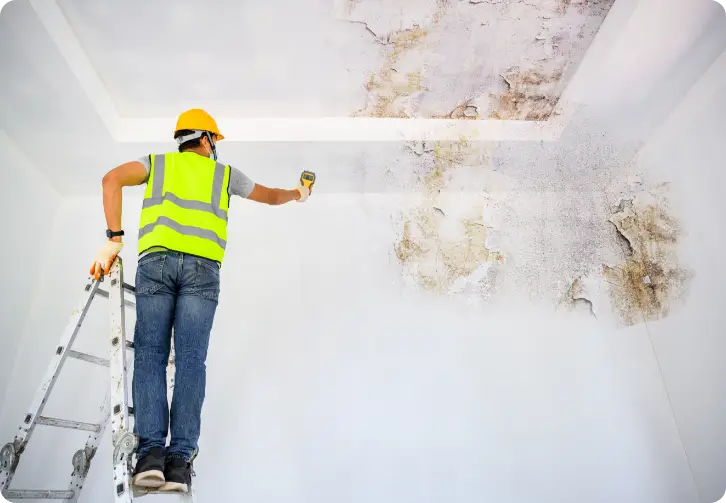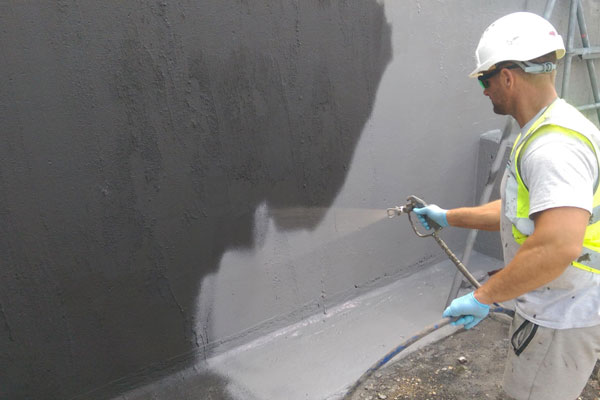Protect Your Walls from Moisture Damage with Effective Waterproofing Methods - All You Need to Know.
Waterproofing. We've heard it so often when it comes down to it, but most of us are yet to know its function, where it should be done, and the best options available. This blog will cover all the essential points you need to know about Wall Waterproofing Services for your walls.

Why is waterproofing required?
Most of us are familiar with the issue of dampness or leaking walls in Indian homes. You must have noticed large amounts of moisture appear, whether in bathroom ceilings, wall regions adjacent to the bathroom, or even in a few tough spots on other walls. The paint on your wall tends to peel off, and speckled green fungus can occasionally be seen.
This issue can make your home look gloomy and could be better during the rainy season. Furthermore, moisture fosters the ideal habitat for bacteria, fungus, and mould growth and can eventually harm your health.
What are the places where it needs to be done?
Your bathroom should be the centre of attention while waterproofing. The explanation is straightforward. It is where the majority of water infiltration happens year-round. Any seepage from these surfaces could have a bad effect on your surrounding walls.
Occasionally the damage results from external sources, like rain, or it previously happened before your bathroom was fully waterproofed. Waterproofing the moist walls in your rooms is a terrific idea in these situations. In such a situation, remember that it is always preferable to seek assistance—even if it comes too late.
Finally, we have ceilings which may leak(this usually happens in bathrooms if your roof/ the bathroom above your floor needs to be waterproofed properly). You can also treat these with effective proofing. This will certainly save you a lot of trouble in the long run.
The Benefits of Wall Waterproofing
Resistant and Waterproof
Waterproof paint can either be completely or only marginally water-resistant. People typically employ waterproof paint in areas like bathrooms and basements, where leaks and excessive moisture are common occurrences. The frequency of your hot baths or showers and the humidity in your bathroom should be considered. With that amount of moisture, conventional paint will be severely harmed.
Prevents damage
The waterproof paint withstood the moist circumstances we previously stated. When moisture seeps into your walls or beneath your conventional paint, you run the real risk of developing a number of serious health issues. Consider the effects that a buildup of moisture inside your walls might have. It can negatively and unsightly impact one's health when mildew and perhaps mould accumulate.
Moisture management
While waterproof paint is not a miraculous cover, it does some amazing tasks. If waterproof paint is done correctly, it will seal to keep moisture inside your bathroom or basement, keeping it from escaping and causing damage to the rest of your property.
What is a quick and convenient way to proof your walls?
We know the difficulty in finding trustworthy painters to complete this task. You do not want to start over after only a month because the materials utilized were unreliable or the proofreading was improperly done.
This is why choosing the Wall waterproofing service from Megajadi will help you avoid the hassle. We provide three alternative solutions for your bathroom, ceiling, and room, respectively, to address the numerous problem areas in your home.

Conclusion
Waterproofing your walls is essential in protecting your property from water damage and other issues. It's important to choose the right type of waterproofing for your walls and hire a professional to do the job if you need more confidence in your DIY skills. Remember, waterproofing has numerous benefits, including preventing water damage, increasing property value, and improving air quality.
FAQ
Why is waterproofing important for walls?
Waterproofing is important to prevent water from penetrating your walls, which can lead to structural damage and the growth of mould and mildew.
What are some signs that my walls need waterproofing?
Signs that your walls may need waterproofing include water stains, peeling paint or wallpaper, musty smells, and visible cracks or damage.
What are the different types of waterproofing for walls?
There are several types of waterproofing for walls, including cementitious waterproofing, liquid waterproofing membranes, and sheet membrane waterproofing.
No comments:
Post a Comment